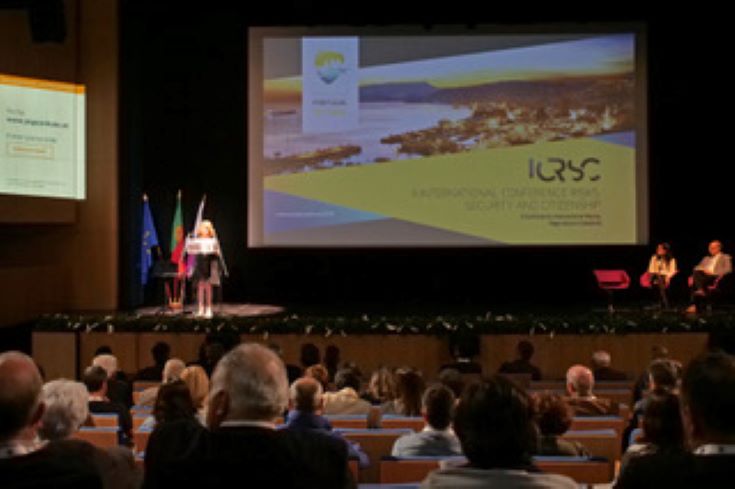A report on the Second International Conference on Risks, Security and Citizenship in Setúbal, Portugal
Lina Kolesnikova took part in the Second International Conference on Risks, Security and Citizenship in Setúbal, Portugal, held from March 28 - 29, 2019. On behalf of the Institute of Civil Protection and Emergency Management (ICPEM), she made a presentation on CBRN Resilience Strategies for Community Protection. Crisis Response Journal was proud to be one of the media partners for this conference. Here is a summary of the event, writes Kolesnikova.
More than 400 participants attended the two-day event and over 50 presentations were made. The UN, European Commission, OECD, Portuguese National Authority of Civil Protection, Swedish Agency for Civil Contingencies and the Universities of Lisbon, Venice, Madrid and Lancaster all presented their views on the climate change problem, disasters resilience, immigration crisis, insurance and financial instruments in disaster management and education and training.

Karolina Kalinowska, on behalf of DG ECHO, talked about Future Challenges of Climate Change on Humanitarian Aid and Crisis Management. She proposed that the EU should consider that, with increasing global population, mega-cities, climate change and poverty, more and more people face the impact of catastrophes. The big concern is fragile states and conflict-affected situations, which are more prone to hazards and catastrophes. In such countries, we count a higher proportion of disaster-impacted populations each year. Countries with fragile governance are less able to respond to disasters and adapt to climate change.
Kalinowska pointed out that instead of costly emergency response, international efforts should help governments and societies to address extreme poverty and vulnerability, invest in risk management and build capacities for pre-emptive and early action. Meanwhile, the role of national civil protection authorities should be to help local and regional authorities channel their investments adequately.

The presentation on the Swedish perspective of rising risks from climate change by Mette Lindahl Olsson, from MSB, raised an interesting discussion during the Q & A session. In 2018, Sweden faced its most intense forest fire season in modern times. An estimated 21 500 hectares of forest have burned to date in the whole country. MSB took a proactive approach in informing the population about fire risks and suggesting ways to handle the fire. It is necessary to say that Sweden used the capacity of EU Civil Protection Mechanism via a request for assistance. This help to Sweden was one of the largest UCPM missions in Europe with seven aeroplanes, six helicopters, 67 vehicles and 460 responders involved.
Olsson identified new issues for Sweden which related to climate change, such as winter fires and extreme fire behaviour.
Charles Baubion, from OECD High Level Risk Forum, attracted attention to Critical Infrastructure Protection. He pointed that a shift from protection to resilience is in huge demand in our modern, complex environment. He shared the OECD Recommendation on the Governance of Critical Risks 2014, and argued for creating partnerships and information-sharing mechanisms in CI resilience.
During the closing session, the organisers of the conference announced that the third conference will take place in 2021.
Lina Kolesnikova is a member of the Editorial Advisory Panel and blog Editor for CRJ.
Images: Lina Kolesnikova
Lina Kolesnikova, 11/04/2019